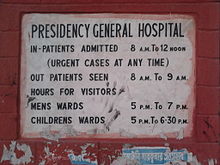User:3562nn01/sandbox

I'm am a bio-engineering major who is new to Wikipedia. I'm interested in researching the gender bias in medical diagnosis.
Articles I am considering:
Topic: Gender Bias in Medical Diagnosis
Hypothesis: Years of sex biased clinical research has led to less effective treatments fro women.
Overarching Question: How has sex biased drug testing influenced the treatments available for women?
Rough Draft: Sex Bias in Clinical Trials
[edit]Men and women are biologically different. They differ in the mechanical workings of their hearts and in their lung capacities, resulting in women being 20-70% more likely to develop lung cancer[1]. The differences between men and women are also seen at the cellular level. For example, the ways immune cells convey pain signals are different in men and women[2] . As a result of these biological differences, men and women react to certain drugs and medical treatments differently[1]. One example is opioids. When using opioids for pain relief, women and men have different reactions. Surveys of the literature also conclude that there is a need for more clinical trials that study the gender specific response to opioids[3].
Although there is evidence pointing to the biological difference between men and women, historically women have been excluded from clinical trials and men have been used as the standard[4]. This male standard has its roots in ancient Greece, where the female body was viewed as a mutilated version of the male body [4]. However, the male bias was furthered in the United States after the FDA issued guidelines excluding women of childbearing potential from trials[5] . Individual studies also excluded women for other reasons including that women were more expensive to use as test subjects because of fluctuating hormone levels. The assumption that women would have the same reaction to the treatments as men was also used to justify excluding women from clinical trials[1].
To help improve the representation of women in clinical trials a series of guidelines for clinical studies have been made[1]. In 1993 the FDA reversed its 1977 guideline banning women of childbearing potential from participating clinical trials. Then in 1993 the United States congress mandated the inclusion of women in NIH-sponsored clinical trials[1].
Although guidelines have been introduced, sex bias remains an issue. A 2001 meta-analysis found that of 120 trials published in the New England Journal of Medicine, on average just 24.6 percent of participants enrolled were women. In addition, the same 2001 meta-analysis found that 14 percent of the trials included sex specific data analysis[6].Years later, in a 2019 meta-analysis it was reported that 36.41 percent of participants in 40 trials for anti-psychotic drugs were women[7].
 | This is a user sandbox of 3562nn01. You can use it for testing or practicing edits. This is not the sandbox where you should draft your assigned article for a dashboard.wikiedu.org course. To find the right sandbox for your assignment, visit your Dashboard course page and follow the Sandbox Draft link for your assigned article in the My Articles section. |
- ^ a b c d e f Liu, Katherine A.; DiPietro Mager, Natalie A. (2016-03-31). "Women's involvement in clinical trials: historical perspective and future implications". Pharmacy Practice. 14 (1): 708–708. doi:10.18549/PharmPract.2016.01.708. PMC 4800017. PMID 27011778.
{{cite journal}}: CS1 maint: PMC format (link) - ^ dusheck@stanford.edu, <img src='//sgec stanford edu/content/dam/sm-news/images/2015/08/dusheck-jennie-90 jpg img 620 high png' alt='Jennie Dusheck'> By Jennie Dusheck Jennie Dusheck is a science writer for the medical school's Office of Communication & Public Affairs Email her at. "Women's immune system genes operate differently from men's". News Center. Retrieved 2019-10-16.
{{cite web}}:|first=has generic name (help)CS1 maint: numeric names: authors list (link) - ^ a b Pisanu, Claudia; Franconi, Flavia; Gessa, Gian Luigi; Mameli, Sergio; Pisanu, Giovanni Maria; Campesi, Ilaria; Leggio, Lorenzo; Agabio, Roberta (2019-09-06). "Sex differences in the response to opioids for pain relief: A systematic review and meta-analysis". Pharmacological Research: 104447. doi:10.1016/j.phrs.2019.104447. ISSN 1096-1186. PMID 31499196.
- ^ a b c Perez, Caroline (2019). Invisible Women: Data Bias in a World Designed for Men. New York: Abrams Press. pp. 195–216. ISBN 978-1-4197-2907-2.
- ^ Commissioner, Office of the (2019-06-04). "Regulations, Guidance, and Reports related to Women's Health". FDA.
- ^ a b Ramasubbu, K.; Gurm, H.; Litaker, D. (2001-10-01). "Gender Bias in Clinical Trials: Do Double Standards Still Apply?". Journal of Women's Health & Gender-Based Medicine. 10 (8): 757–764. doi:10.1089/15246090152636514. ISSN 1524-6094.
- ^ a b Santos-Casado, María; García-Avello, Adela (June 2019). "Systematic Review of Gender Bias in the Clinical Trials of New Long-Acting Antipsychotic Drugs". Journal of Clinical Psychopharmacology. 39 (3): 264. doi:10.1097/JCP.0000000000001041. ISSN 0271-0749.
- ^ FitzGerald, Chloë; Hurst, Samia (2017-03-01). "Implicit bias in healthcare professionals: a systematic review". BMC Medical Ethics. 18 (1): 19. doi:10.1186/s12910-017-0179-8. ISSN 1472-6939. PMC 5333436. PMID 28249596.
{{cite journal}}: CS1 maint: PMC format (link) CS1 maint: unflagged free DOI (link) - ^ Holdcroft, Anita (2007). "Gender bias in research: how does it affect evidence based medicine?". Journal of the Royal Society of Medicine. 100 (1): 2–3. doi:10.1177/014107680710000102. ISSN 0141-0768.
- ^ Shaw, Leslee J.; Pepine, Carl J.; Xie, Joe; Mehta, Puja K.; Morris, Alanna A.; Dickert, Neal W.; Ferdinand, Keith C.; Gulati, Martha; Reynolds, Harmony; Hayes, Sharonne N.; Itchhaporia, Dipti (2017-07-10). "Quality and Equitable Health Care Gaps for Women: Attributions to Sex Differences in Cardiovascular Medicine". Journal of the American College of Cardiology. 70 (3): 373–388. doi:10.1016/j.jacc.2017.05.051. ISSN 0735-1097.
- ^ Hamberg, Katarina (2008-05-01). "Gender Bias in Medicine". Women's Health. 4 (3): 237–243. doi:10.2217/17455057.4.3.237. ISSN 1745-5065.
